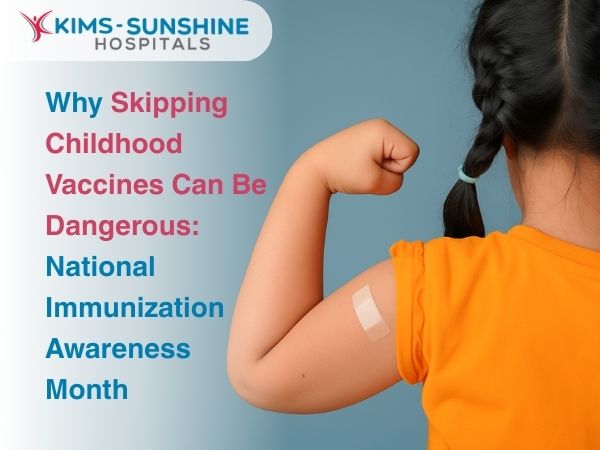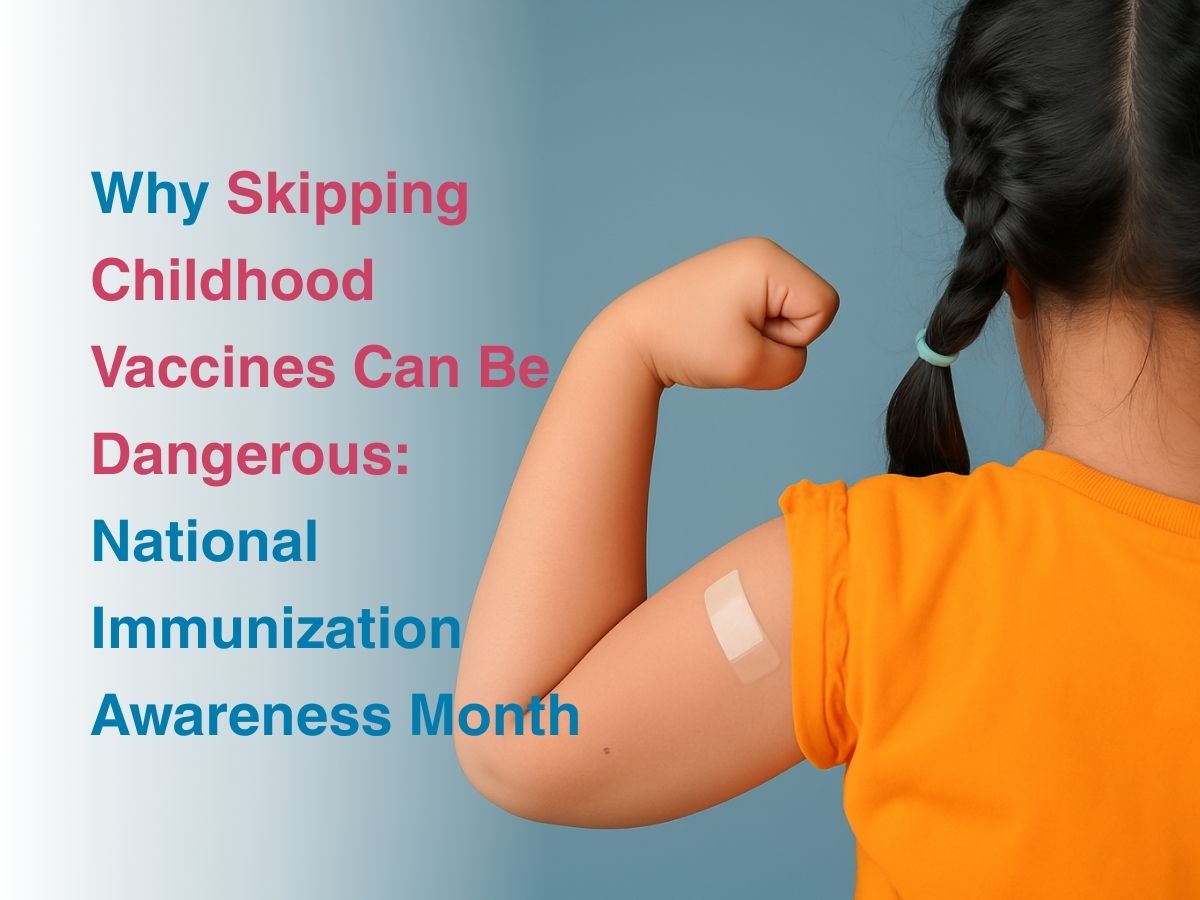
Why Skipping Childhood Vaccines Can Be Dangerous: National Immunization Awareness Month
What Vaccines Are Given To Babies In The First Year?
In India, a child’s first year begins with essential immunisations starting at birth with BCG for tuberculosis, hepatitis B for liver protection, and OPV‑0 to prevent polio. As the months progress, at six, ten, and fourteen weeks, they receive pentavalent (DPT‑HepB‑Hib), polio (OPV or IPV), rotavirus, and pneumococcal vaccines, all scheduled to build strong early immunity. By their first birthday, they are also given the Measles‑Rubella vaccine, possibly Japanese Encephalitis in endemic regions, and vitamin A- all of which together offer a foundational shield against several preventable diseases.
Importance Of Vaccines In Early Childhood-
Vaccines are akin to invisible bodyguards that curiously work even before symptoms appear, acting not just to protect a single child, but to fortify the whole community through herd immunity. This is especially vital in densely populated Indian neighbourhoods where diseases like measles or polio can leap from child to child in a single cough if we leave gaps in protection.
Side Effects Of Childhood Vaccines And How To Manage Them-
When a tiny arm or thigh bears a vaccine prick, the reaction is usually mild- a little redness, slight swelling, perhaps a low fever or drowsiness that lasts a day or two- and though they may prompt parental worry, these side effects are usually gentle whispers of the immune system waking up, not cause for alarm.
Managing these is part of care: a cosy swaddle, a cuddle, a lukewarm bath, or a little paracetamol if advised by your paediatrician, can all soothe discomfort while allowing the body to do its valiant job of building defence. It is also a reminder that these minor reactions are far preferable to preventing a serious illness such as pneumococcal meningitis, which can disable or end a young life.
Child Immunization Tips For New Parents-
Immunisation may seem like a maze in the early months of parenthood, but it often becomes manageable with small, consistent steps such as maintaining a simple vaccination calendar, setting reminders, and building a relationship with a reliable clinic or health worker. When doubts creep in perhaps due to a sniffle, a mild fever, or a relative’s hesitation about “too many injections”, it is worth remembering that most minor illnesses do not require postponing vaccines, as paediatricians across India usually recommend continuing as planned if the child is otherwise active and recovering. Delaying a dose unnecessarily can widen into a risky gap in protection that may allow serious illnesses to slip through.
Conclusion
Skipping childhood vaccines is not merely skipping a needle, it is stepping away from a lifeline woven with science, empathy and communal trust; in India, where the shadow of once-common diseases still lingers, every missed dose is an invitation to suffering that communities cannot afford. So, let’s hold to the belief that every jab is a promise that is written in care and fulfilled in good health. That it will resonate beyond the child and gently ripple into families, neighborhoods and generations yet to come.







